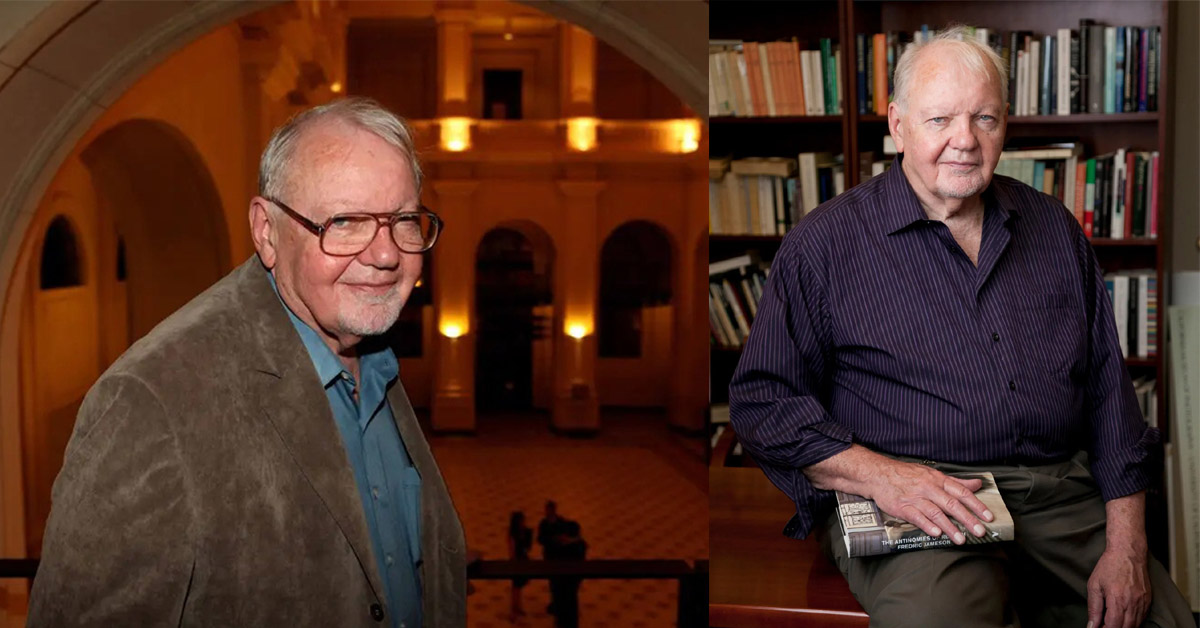Fredric Jameson, Critic Who Linked Literature to Capitalism, Dies at 90
Fredric Jameson, Critic Who Linked Literature to Capitalism, Dies at 90
A Pioneering Voice in Literary Criticism
Fredric Jameson, one of the foremost literary theorists of our time, passed away on Sunday at the age of 90 at his home in Killingworth, Conn. Known for his rigorous Marxist critique, Jameson explored a wide array of subjects, from German opera to sci-fi films and luxury hotel design. His daughter, Charlotte Jameson, announced his death, though no cause was given.
A Legacy of Scholarly Influence
Jameson authored more than 30 books and countless articles, establishing his work as essential reading in fields like literature, film studies, architecture, and history. Despite being primarily an academic, his influence rivaled that of more publicly recognized figures such as Slavoj Zizek and Harold Bloom.
Marxism and Culture
Throughout his career, Jameson played a crucial role in introducing Western Marxist perspectives to American academia, emphasizing the intricate relationship between culture and capitalism. He famously noted, “We inhabit a dream world of artificial stimuli and televised experience,” in his seminal work, Marxism and Form (1971). His 1981 book, The Political Unconscious: Narrative as a Socially Symbolic Act, linked narrative forms from the epic to the modern novel to the evolution of capitalist structures.
The Critique of Postmodernism
In the 1980s, Jameson confronted postmodernism, which had gained traction in academic circles. In Postmodernism, or, the Cultural Logic of Late Capitalism (1991), he argued that postmodernism itself was a grand narrative that obscured its status as such. He posited that it marked a commoditization of culture, replacing historical context with irony and pastiche.
Continued Relevance
Jameson’s insights extended to pop culture, where he interpreted films like Star Wars as nostalgic reflections for a generation. His most recent works, including Inventions of a Present: The Novel in Its Crisis of Globalization (2023) and the upcoming The Years of Theory: Postwar French Thought to the Present, showcase his enduring productivity.
Fredric Jameson Personal Background
Born on April 14, 1934, in Cleveland, Ohio, Jameson earned his degree in English from Haverford College and later pursued a Ph.D. at Yale. He taught at several prestigious institutions before joining Duke University in 1985, where he remained until his passing.
Jameson is survived by his wife, Susan Willis, and their three daughters, including Charlotte. His work continues to illuminate the complex interplay between capitalism and culture, urging readers to envision possibilities for liberation amid the challenges of late capitalism. As he poignantly stated in The Seeds of Time (1994), “It seems to be easier for us today to imagine the thoroughgoing deterioration of the earth and of nature than the breakdown of late capitalism.”
Famous Memorial and Join TELEGRAM
Fredric Jameson, Critic Who Linked Literature to Capitalism, Dies at 90






